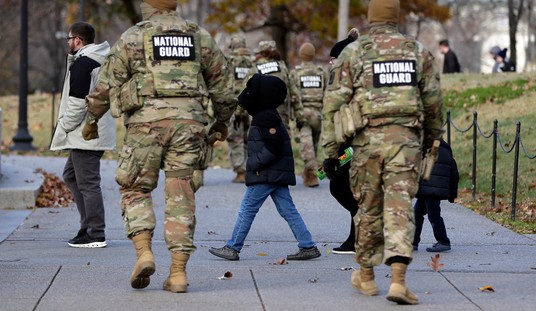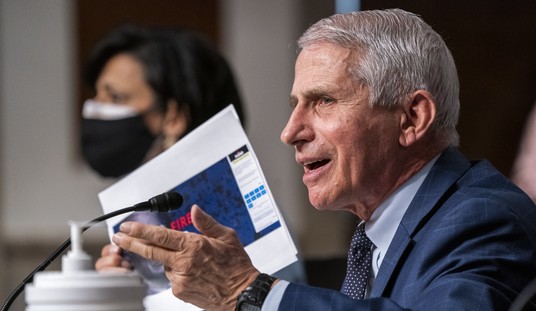If you oppose American military intervention in Syria, only the topline question of the new Washington Post/ABC News poll will cheer you up. Almost three out of four respondents oppose any direct US intervention in the civil war, but those numbers flip when almost any significant change in the status quo is proposed:
While Americans broadly prefer to stay out of direct involvement in the conflict in Syria, support for U.S. military action soars in the event of a loss of control of its chemical weapons, the use of such weapons on the Syrian people or an attack on neighboring U.S. allies.
Most in the latest ABC News/Washington Post poll also say they’d support the imposition of a no-fly zone over Syria, provided U.S. ground forces are not involved.
In general, 73 percent say the U.S. military should not get involved in the conflict. But almost exactly as many say they’d support U.S. military involvement if Syria were to lose control of its chemical weapons, as do 63 percent if the Assad regime used these banned weapons against its own people – an action that Barack Obama has warned would “cross a red line.”
Similarly, if Syrian forces were to attack nearby U.S. allies, 69 percent say they’d support U.S. military involvement. And regardless of any such specific provocation, 62 percent say they’d favor creation of a no-fly zone, provided no ground troops were used. (That may reflect the success of the no-fly zone over Libya, general preference for air vs. ground combat, or some combination of both.)
Even among those who initially oppose U.S. military intervention, more than half change their position given the specific circumstances proposed, including 69 percent who, despite initial hesitancy, support U.S. involvement if Syria’s chemical weapons stockpile became insecure.
The pollster, Langer Research Associates, provides this helpful chart to explain the dynamic:
I hate to be Captain Buzzkill, but we’re not that far away from any of those three conditions. If Assad falls, the likelihood of loss of control of chemical weapons will be very high, unless the Army defects en masse to the opposition. Syria has already shot a few shells into Turkey, supposedly by accident, but the US and Germany now have hundreds of troops on the border manning Patriot missile batteries, an obvious tripwire message NATO is sending Assad. I doubt that Assad will have any scruples about using chemical weapons on his own people to remain in power; the question will be whether he gets the opportunity to do so.
I’m not the only one looking at this pessimistically, either. The poll shows that Americans have become a lot more pessimistic about the Arab Spring in general over the last couple of years:
More generally, this poll, produced for ABC News by Langer Research Associates, finds the American public wary of the unrest in Syria and the course of the Arab Spring more broadly. Majorities think these events will harm, not help, U.S. political and economic interests in the region, and more think they’ll harm rather than help U.S. efforts to fight terrorist groups.
Fewer than a quarter think the outcome of the Syrian and broader Middle East/North Africa unrest will ultimately help U.S. political and economic interests. And Americans by 44-26 percent think the events in Syria will harm the United States’ ability to fight terrorist groups in the region. The public by 52-28 percent says the same about the Arab Spring more generally.
Gee, I wonder where (benghazi) Americans might have gotten (Benghazi) the idea that Arab revolutions would make it more difficult to fight terrorism (BENGHAZI)? By the way, don’t blame a partisan split for the polling results, although there are some gaps between the three poles of American politics:
Initial reluctance to involve the U.S. military in Syria is broadly based, with, for example, roughly equal numbers of Democrats, Republicans and independents opposed. Opposition rises with age, from 66 percent of 18- to 29-year-olds to eight in 10 seniors.
Partisan differences emerge in some of the specific scenarios. Support for U.S. involvement is 13 points higher among Republicans than independents (with Democrats in the middle) if Syria loses control of its chemical weapons stockpile, 12 points higher among Republicans and independents than among Democrats if chemical weapons are used on the Syrian people, and 10 points higher among Republicans than Democrats and independents if U.S. allies are attacked.
There’s no such gap on a no-fly zone, supported by 67 percent of Republicans, 62 percent of independents and 60 percent of Democrats alike.
While those gaps look significant, the chart puts that into context. There is only a veneer of anti-interventionism among all of these groups, and it won’t take much from the Syrian regime for Obama to get support if he decides to apply the same policy to Assad as he did to Moammar Qaddafi.










Join the conversation as a VIP Member